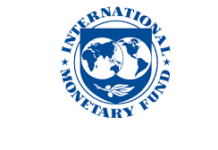A Nation and Its Appalling Debt Crisis
By Karima Kabir Garba,
The editorial of the Punch newspaper of Monday, June 19, 2023, with the above title, is indeed apt. It could not have come at a better time, in view of the dire economic strait Nigeria finds herself.
I personally do not subscribe to borrowing or accessing loans, especially from international financial institutions, such as the World Bank, among others.
But it is unfortunate that borrowing is the only word successive Nigerian governments, and even State Governments, across the federation, understand.
According to the editorial, Nigeria’s total debt, in the last seven years, outweighed total revenue generated by N13.26 trillion. This clearly indicates how precarious Nigeria’s financial state is.
Part of the editorial reads: “Data from the Central Bank of Nigeria and the Debt Management Office show that the Federal Government generated total revenue of N43.06 trillion between 2016 and 2022, but borrowed N56.32 trillion in the same period.
“Leading civic-tech organisation, BudgIT, in a review of the Muhammadu Buhari administration’s economic legacy, noted that between 2016 and 2022, the government raised total revenues of N26.67trillion and expended N60.64trillion, leaving a deficit of N33.97trillion.
Read Also:
“Total public debt was N12.6 trillion as of December 2015, but grew by N33.65 trillion to N46.25 trillion by December 2022. Borrowings from the CBN through the ‘Ways and Means’ advances were N856.33 billion as of December 2015, but grew by N22.67 trillion to N23.53 trillion by December 2022. The complicit Ninth Senate passed a bill to raise the borrowing limit on this window”.
From the foregoing, the President Bola Ahmed Tinubu’s government is therefore in a perilous position with little resources available to fix decaying infrastructure or add new ones. Nevertheless, the Tinubu administration must apply new and strategic thinking to solving the debt crisis.
It is imperative that President Tinubu, immediately should impose a moratorium on fresh borrowings, except unavoidable ones and this must have been previously negotiated.
Unlike his predecessor, he should also, assemble and work closely with a crack team of economic experts and private sector operators.
Again, there should also be a very close collaboration with the organised private sector, while plugging revenue leakages and waste, taming corruption and drastically cutting down on luxuries and the bureaucracy, in order to reduce the pressure to borrow.
More importantly, there must be improved revenue generation and resource mobilisation through extensive reforms of the revenue-generating agencies in the oil and gas industry, the Customs, Federal Inland Revenue Service, Nigerian Maritime Administration and Safety Agency, Nigerian Ports Authority, and others.
That way the debt crisis confronting Nigeria can speedily be tackled.
Karima Kabir Garba is a student of Nile University, and can be reached via: [email protected]
















